Different Interpretation不同的视角(下)
3.STYLE DF HANDLING AND SHOWING指导和展示风格
Geir also talks about Boxers being different in some parts of the world than they are in others. The same applies to other breeds such as German Shepherd Dogs and Dobermans. I wonder if part of the reason for these divergences is that the style of handling and showing these breeds varies from one country to another. For example, in some countries these breeds are routinely ‘double handled’ with as many people outside the ring attracting the dog’s attention as there are in the ring handling them.
Geir还谈到,拳师犬会因为所处地域环境不同而表现不同,表现出这种特性的犬种还有比如德国牧羊犬以及杜宾犬等。我在想,造成这些差异的原因是否是各国指导手的指导风格差异,以及展示犬只的方式不同。比如,在某些国家会实施“双向指导”,即赛环外有一些人吸引犬只的注意力,而赛环里有指导手负责引导。

That means that in some countries free flowing movement, undisturbed by the dogs being constantly distracted, is hard to see. In the long run that Is bound to end up making the breeds diverge somewhat.
也就是说在某些国家的犬展上,很难看到自由畅快的犬只展示,因为犬只很容易被打扰。如此长期以来,一些犬种在某种程度上会发生变化。
Again, as an aside, once when about to judge the Puppy and Junior classes for Boxers in an FCI county, I was appalled to see the person judging the adults allowing a vast amount of double handling. Balls on elastic where being thrown into the ring and then bouncing back out of the ring. Shouting to the dogs was nearly deafening, imitation chickens were being thrown in the air and then a Pomeranian was subjected to similar treatment. I asked the President of that country’s kennel club what the rules on double handling were. I was told: “They are much the same as in the UK. It is forbidden, but if you want to come back and judge the breed here again, it would be best if you’re not too strict about it.” I don’t think I have been back to judge the breed there again, and thank goodness for that! It is almost impossible to assess movement in that kind of atmosphere and so heads and other features start to become of far greater importance.
记得有一次在参加FCI 拳师犬特幼组以及青年犬组的执裁时,见识过一位审查员在执裁成犬时允许多只参赛犬只进行“双向指导”。塑料小球被扔进赛环然后弹出赛环,模型有声鸡被扔向空中,声音几乎淹没了所有。后面的博美犬也会受到此种指导。赛后我向该国犬业协会主席询问过双向指导的规则是什么。他告诉我,“其实我们跟英国犬业协会一样,双向指导是不被允许的。但如果你想再次的到这来执裁,要求最好不要那么严厉。”真幸运我不用再回到这里当审查员!在那种喧嚣的氛围里,犬只根本无法自由的展示,审查员也无法进行评估,因此,犬只的头部以及其他部位在犬种标准中变得愈发重要。
4.COATS 被毛
Another feature mentioned in Geir Pedersen’s article is the acceptance by the majority of judges of extra leg hair in Giant Schnauzers and the way that this has led, overt the years, to a difference in coat texture in the breed. The same, in my view, applies to some terrier breeds. Notably in the West Highland White Terrier certainly here in the UK, where there has been a tendency over the years towards far more leg hair and ‘skirts’ on the body. This in turn has, in my view, led to coat texture which by and large is far less harsh than is demanded by the breed standard.
Geir Pedersen的文章中提到的另一点是大多数审查员对于雪纳瑞腿部被毛的执裁要求,以及多年来导致该犬种被毛差异的原因。同样,我认为这些因素也适用于其他梗犬类。尤其是英国的西高地白梗,多年来已经形成一个趋势,即腿部毛量大,两层被毛为佳。而我个人认为,这远没有犬种标准中被毛的要求严格。
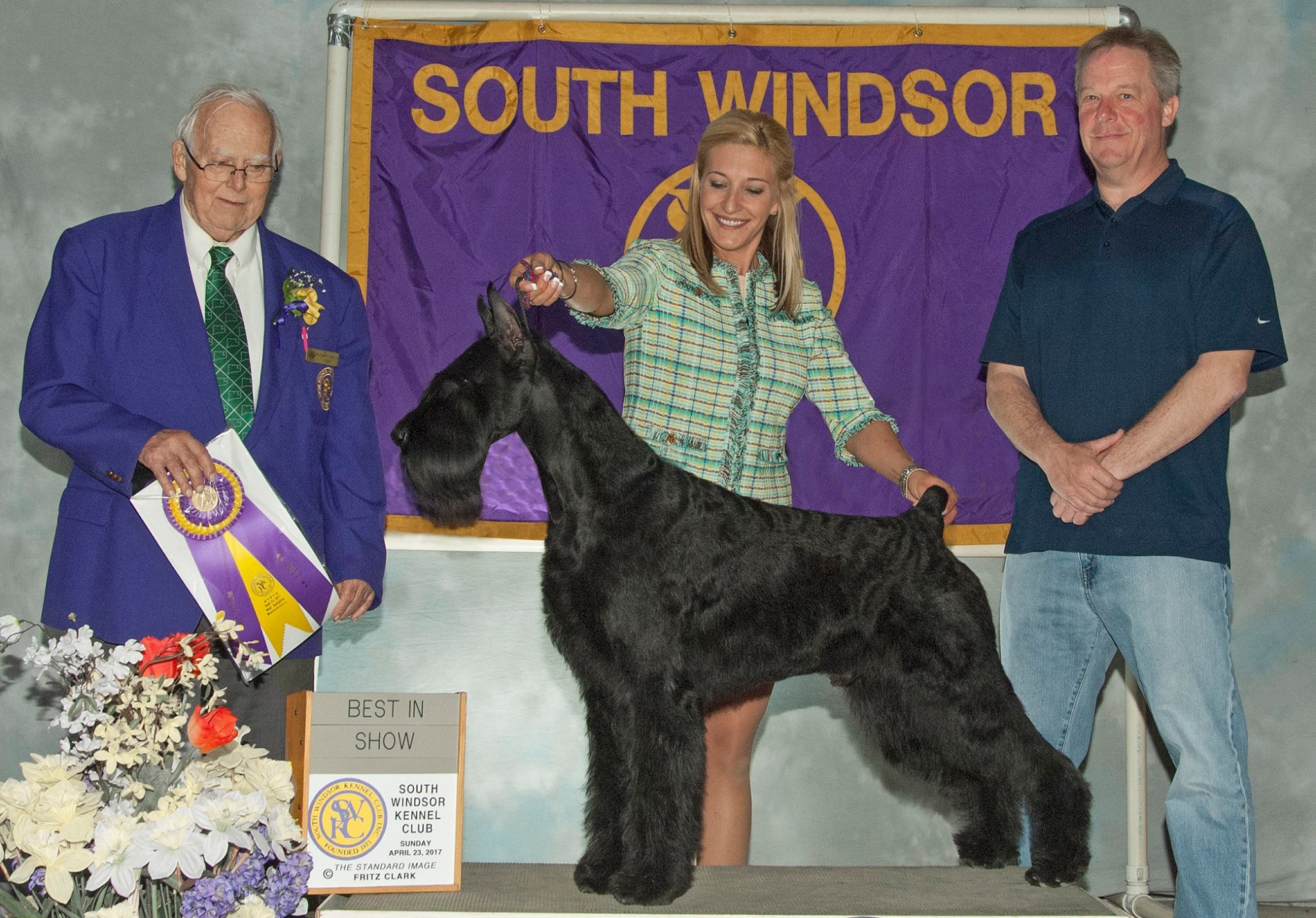
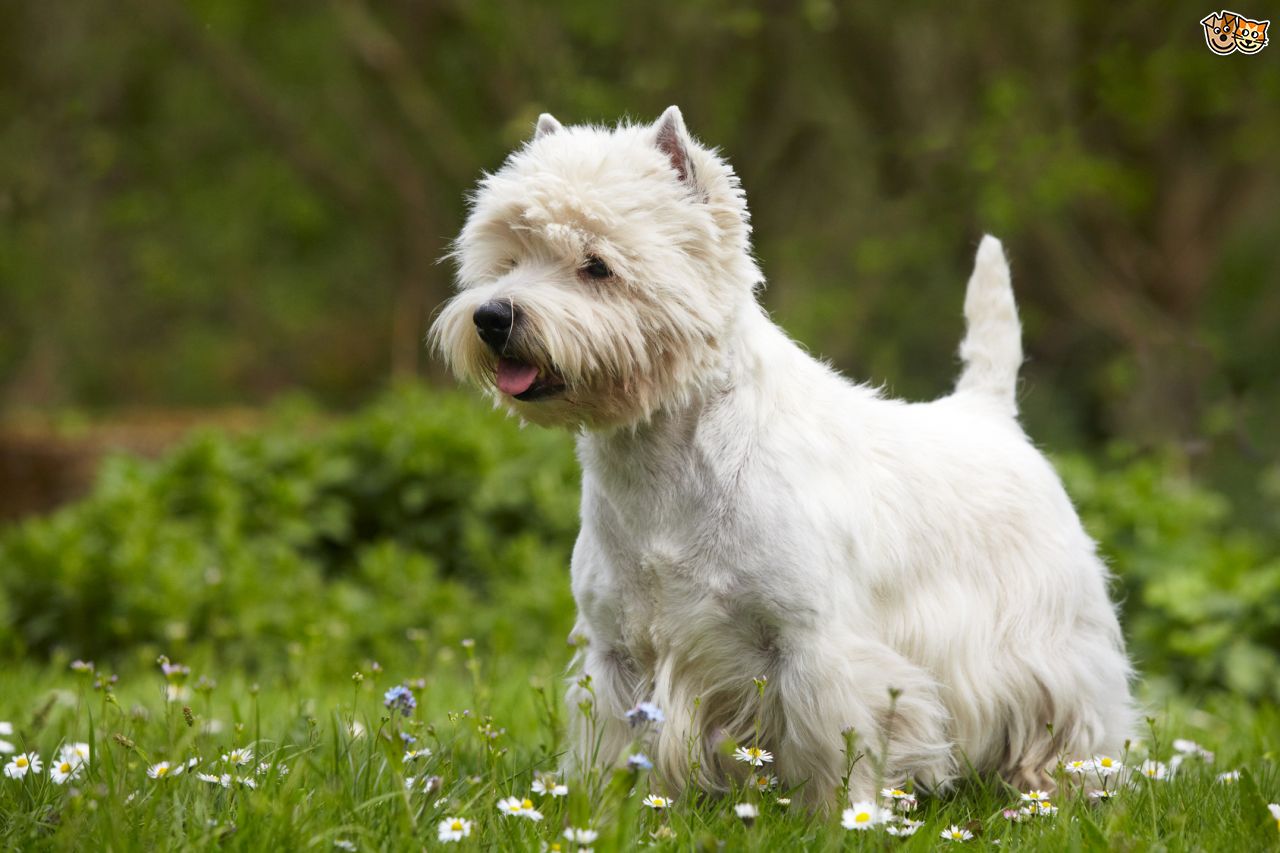
In my own breed the Border Terrier, the fashion has changed over time. When I first started showing the breed, dogs with full coats were able to win quite easily in the show ring. Today the breed is trimmed far more than it used to be, and judges tend to accept dogs that we would previously have said were totally out of coat. The argument goes that coat condition is a short term temporary aspect and is therefore less important than other permanent features. That Is all very well but that attitude can lead to the situation where the breed is no longer able to grow the kind of proper double coat that It is supposed to have.
边境梗的执裁情况已经有所改变。我最初审查边境梗时,犬只拥有厚实的被毛就有很大的获胜几率。现在的犬只比起过去会进行更多的修剪,而审查员对犬只的要求远不仅限于被毛。也有人认为,犬只定期换毛,因此被毛显得不是很重要。犬只的确会换毛,但这种忽视的态度会使得犬只的被毛质量达不到本身该有的效果。
5.ORIGINS 犬种标准起始
The precise origins of breed standards can also have an influence over breeds and the way that they have developed and they may be different from one country to another. For example, many of TKC’s breed standards even for breeds originating outside the UK, were written over a hundred years ago and have been used by breeders faithfully over many years. Some of these vary significantly from the breed standard currently used in the country of origin. Indeed, some of them were even written and accepted by TKC here in the UK, long before the country of origin itself had a kennel club of its own. For TKC to suddenly ask its breeders to change the view of a breed that they have developed over many years, would not be acceptable to grass roots breeders hence there are differences in type.
犬种标准的起始历史也会对犬种以及后期的发展方式产生影响,因此各个国家会产生差异。举个例子,TKC多项犬种标准建立于100多年前,许多繁育人多年来一直沿用这些标准, 也有一些与起始国家的犬种标准大不相同。确实,早在起始国家成立犬种俱乐部之前,TKC 以及FCI已经将一些犬种标准记录于书。对于TKC繁育人来说,突然要求他们改变认可多年的犬种标准是很不现实的,尤其对一些草根繁育人来说,很难接受,因此,长期以往犬种之间会出现差异。
For example, Saint Bernards were being shown in Britain from the 1860s and the original St Bernhard Club (note the spelling) which wrote the first breed standard for the breed was founded in 1881. Thus the first standard for the breed was written and published before the Swiss Kennel Club itself was founded in 1863.
例如,1860年,巨型雪纳瑞开始出现在赛场上,而建立第一个犬种标准的圣伯纳德俱乐部(注意到拼写)成立于1881年。该犬种的第一个标准是1863年瑞士犬种俱乐部成立之前撰写和出版的。
6.WORDS AND CONTEXT 犬种术语和环境
There are also many interpretations that can be made by different breeds of the meaning of words used in their breed standards. For example, which of the following three breeds would you regard as being the longest in body? The Border Terrier; the Cairn Terrier; or the Pembroke Welsh Corgi? I think most people would answer that the Pem Corgi would be the longest, followed by the Cairn Terrier followed by the Border Terrier. In fact TKC’s breed standard for the Pembroke Welsh Corgi asks for its body to be: “Medium length.”The Cairn Terrier too should have a body which is: .Medium length. And the Border Terrier? Its standard asks for a body which is “fairly long’’.
不同犬种的犬种标准术语也有多种阐述。 例如,你认为边境梗犬,凯恩梗犬以及彭布罗克威尔士柯基中身长最长的是哪一类?我相信很多人会选择彭布罗克威尔士柯基,凯恩梗犬,最后是边境梗犬。事实上,TKC犬种标准中,彭布罗克威尔士柯基犬的标准身长是中长,凯恩梗犬中长,那么边境梗犬呢?边境梗犬身长较长。
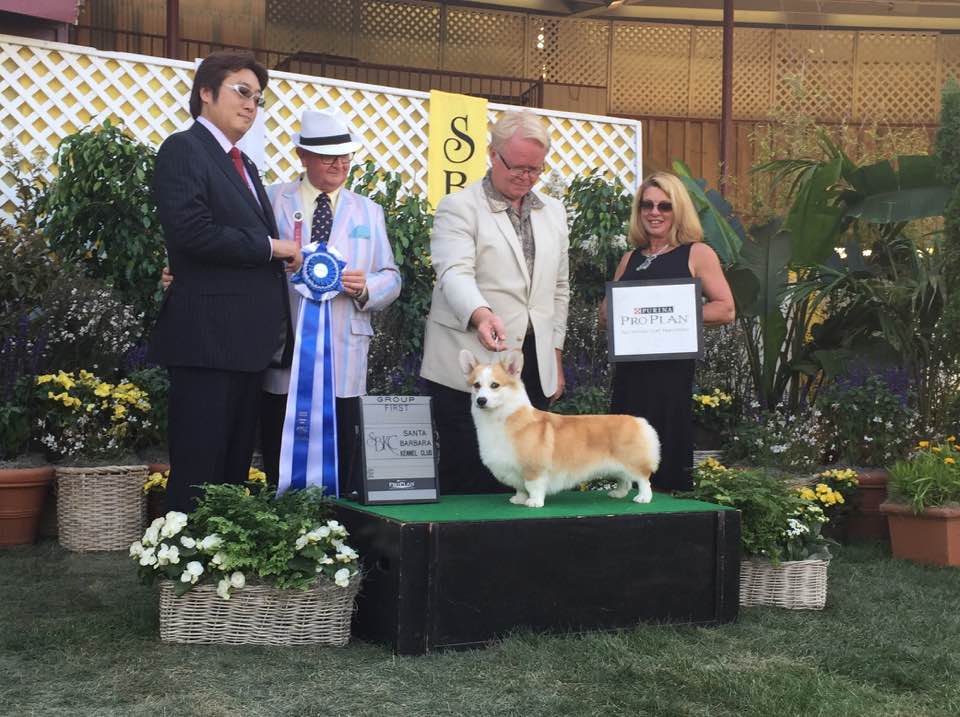

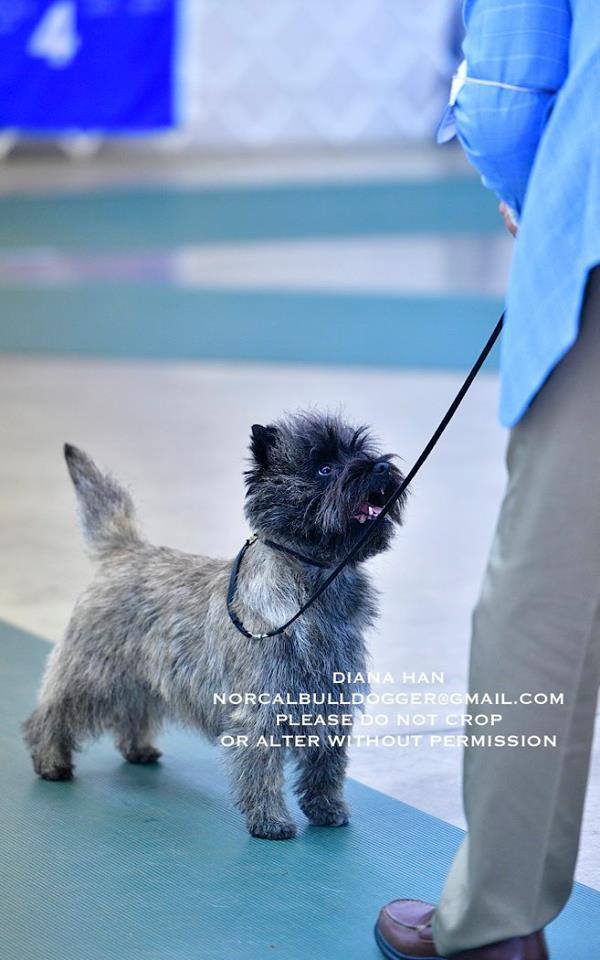
This brings us back to the issue of context and “where you are coming from’. When the Border Terrier Breed standard was written in 1920 the most popular terrier breed was the Fox Terrier. Its standard had been written in the 1870s by some well-educated and landed gentlemen. Nearly years later the Border Terner people were mostly farmers and shepherds from the Border district between England and Scotland. They lifted many of the words straight from the Fox Terrier standard even although the breeds were rather different. For example – Smooth Fox Terrier: “Tail: Set on rather high, carried gaily but not over the back* and – Border Terrier: “Tail: Set high, carried gaily, but not curled over back*. When it came to body length they wanted to make it clear NOT that the Border should have a long back but that it should at least be longer than that of a Fox Terrier. Hence the words used: “Body fairly long.”
我们又回到前面的问题:环境,你来自哪里。1920年边境梗犬种标准建立之时,最受欢迎的犬种是刚毛猎狐梗犬。1870年几位受过良好教育的乡绅地主建立了刚毛猎狐犬的犬种标准。几年之后,繁育边境梗犬的人多数是英格兰和苏格兰边境地区的农民和牧场主。尽管犬种不同,他们直接沿用刚毛猎狐犬的犬种标准来阐述边境梗犬。比如,平毛猎狐梗犬: 尾巴位置略高,愉快地举着,但不能卷曲。边境梗犬:尾巴高举,不能卷曲。谈到身长,他们认为边境梗犬背部不能过长,但身长至少超过刚毛猎狐梗犬。这就有了术语:中等身长。

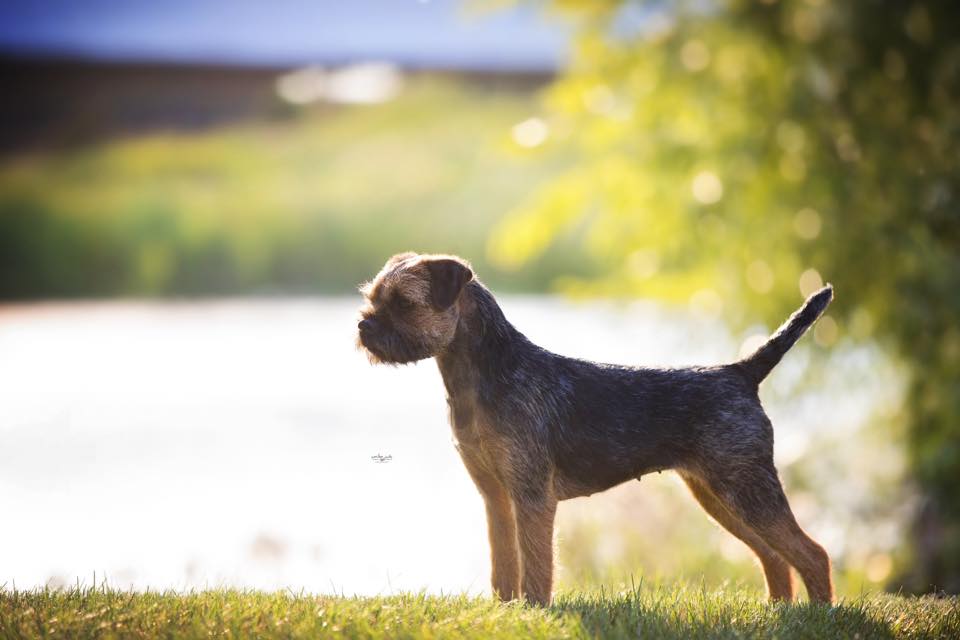
I’m really sorry to have to keep agreeing with him but as Geir Pedersen says, there are often many interpretations of breed standards. And probably this is no bad thing. After all, if every judge put the same interpretation on every word in every standard, the same dogs would win every week. Or even more aptly, as the civil rights activist Audrc Lordc said in an entirely different context “It is not our differences that divide us. It is our inability to recognize, accept, and celebrate those differences.”
很抱歉我不得不同意他的看法,但正如Geir Pedersen所说,对犬种标准的阐述多样。可能也不是一件坏事。毕竟,如果每个犬种都使用同一种标准阐述,那无疑每场比赛的冠军属于同一只犬只。或者正如维权活动家奥德尔·戈德克(Audrc Lordc)在完全不同的背景下说的那样,“不是差异划分了我们,而是我们认知,接受以及对待差异的方式。”
转自Dog News, 由犬界网编译。
 犬界网 上海言瑞文化传播有限公司
犬界网 上海言瑞文化传播有限公司 




